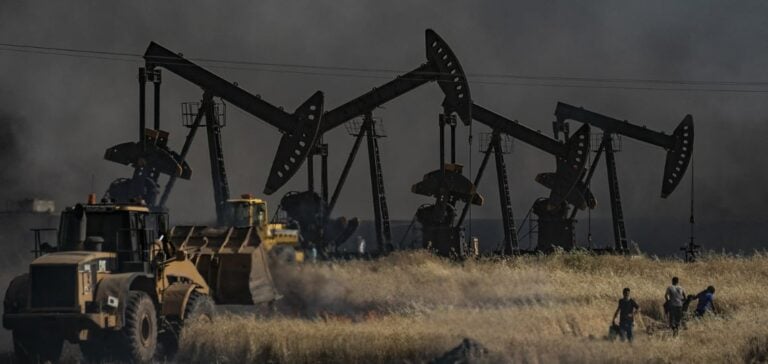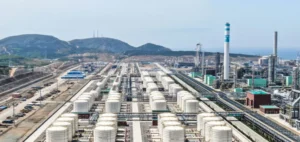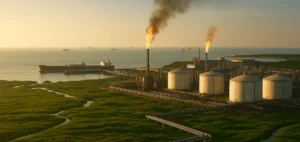Investors, faced with unprecedented economic uncertainty, reduced their positions in major oil contracts to their lowest levels in a decade.
In the week ending August 6, management funds sold the equivalent of 110 million barrels in major oil futures and options contracts, the fifth consecutive week of net sales.
This liquidation, which totals 372 million barrels since the beginning of July, reflects a widespread flight from risk in the financial markets.
Fund managers, aware of the deteriorating global economic outlook, have pulled out en masse, preferring to withdraw from oil assets perceived as vulnerable in the event of a recession.
This trend marks a reaction to worrying economic indicators, with a particular focus on the potential decline in global oil consumption, which could worsen the situation for the sector.
Market Impact: Massive Selling and Strategic Adjustments
Oil markets recorded significant sales: 53 million barrels of Brent, 31 million barrels of WTI (NYMEX and ICE), 13 million barrels of European diesel, 9 million barrels of US diesel and 5 million barrels of US gasoline.
The liquidation of bullish long positions was accompanied by the opening of new bearish short positions, contributing to the acceleration of the sell-off.
The oil market, already under pressure, saw these movements amplify price volatility.
This situation is reminiscent of the massive selling seen in January and February 2020, when traders anticipated an economic contraction linked to the COVID-19 pandemic.
Today, positions held by fund managers on Brent are at record lows, while those on other oil products are also close to historic lows.
This strategic reappraisal by investors reflects increased caution in the face of macroeconomic risks.
Opportunities and Challenges for Investors
Despite the extreme bearish positioning, some industry analysts believe that this configuration could offer an opportunity for those ready to bet on a recovery.
Brent crude oil prices, after dropping to $75 a barrel in early August, have rebounded above $80, suggesting that markets are anticipating a possible stabilization or recovery.
This rebound could prompt some investors to hedge their short positions or initiate new long positions, betting on an economic recovery.
However, volatility remains a determining factor.
The risks associated with falling global oil demand, combined with geopolitical and economic uncertainties, continue to dissuade investors from fully committing to bullish positions.
Fund managers are opting for a cautious approach, waiting for clearer economic signals before repositioning themselves significantly in the oil market.





















